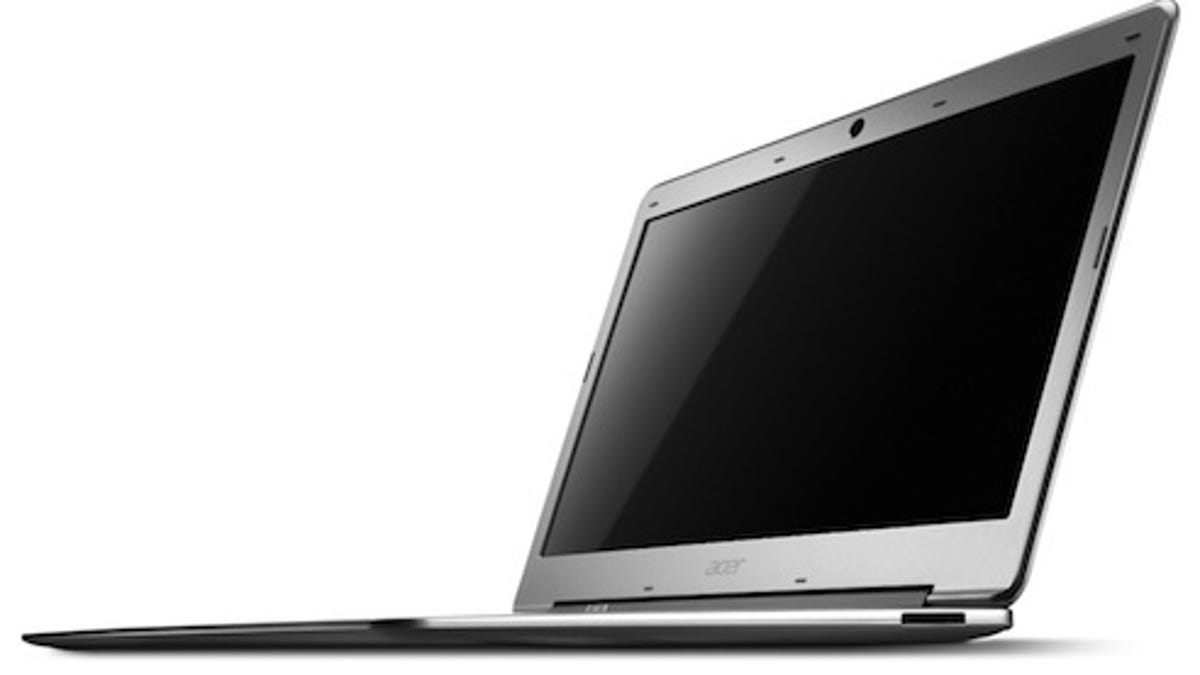Acer CEO pinning company future on ultrabooks
Acer CEO J.T. Wang says that although his company has suffered losses in two straight quarters, ultrabooks are its ticket back to profitability.

Acer's financial troubles are mounting, but its CEO insists that he knows what will return the company to profitability: ultrabooks
"Ultrabooks will become our key growth driver next year as customers want a lighter, thinner notebook with longer battery life," Acer CEO J.T. Wang told Dow Jones Newswires in an interview published yesterday. "Selling more ultrabooks will also help improve our profit margins as they command higher prices."
At one time, Acer seemed well on its way to becoming the world's largest PC maker, surpassing Dell in 2009 as its shipments soared. Over the last several quarters, however, things have soured considerably for the Taiwanese company.
Gartner reports that Acer shipped 9.7 million PC units worldwide last quarter, earning it 10.6 percent of the market and putting it in fourth place behind HP, Dell, and Lenovo. Acer's total PC shipments dropped a whopping 23.2 percent compared to the same period last year. It was a similarly disconcerting second quarter for Acer when the company shipped 9.1 million PCs, dropping 10 percent year-over-year.
Those shipment declines have caused sales to drop by 23.34 percent over the last twelve months.
Of course, it's far from clear whether ultrabooks can actually reverse Acer's fortunes as Wang suggests. Last month, Digitimes reported, citing sources, that both Acer and Asus have cut their ultrabook orders due to sluggish demand for the computers.
It isn't clear exactly why ultrabooks like the Acer Aspire S3 and the Asus Zenbook UX31 haven't succeeded so far. CNET senior editor Scott Stein thinks the problem is that most ultrabooks are largely indistinguishable from Apple's popular MacBook Air.
"Any of these laptops are, first and foremost, MacBook Air-alikes," Stein said of ultrabooks in October. "Yet, somehow, Apple's MacBook Air is a nothing-alike: it stands alone. It's earned that distinction, because it was the first kid on the block: the first Air debuted in January 2008. It's also the most likely laptop to be recognized out of a lineup by 10 random people on the street, by a long shot."
But Wang claims to have a strategy for turning things around. Speaking at a conference in Taipei last week, he said that ultrabook success hinges on prices hovering "at about $699." He went on to tell those in attendance that he expects Acer to ship between 250,000 and 300,000 ultrabooks this quarter.

